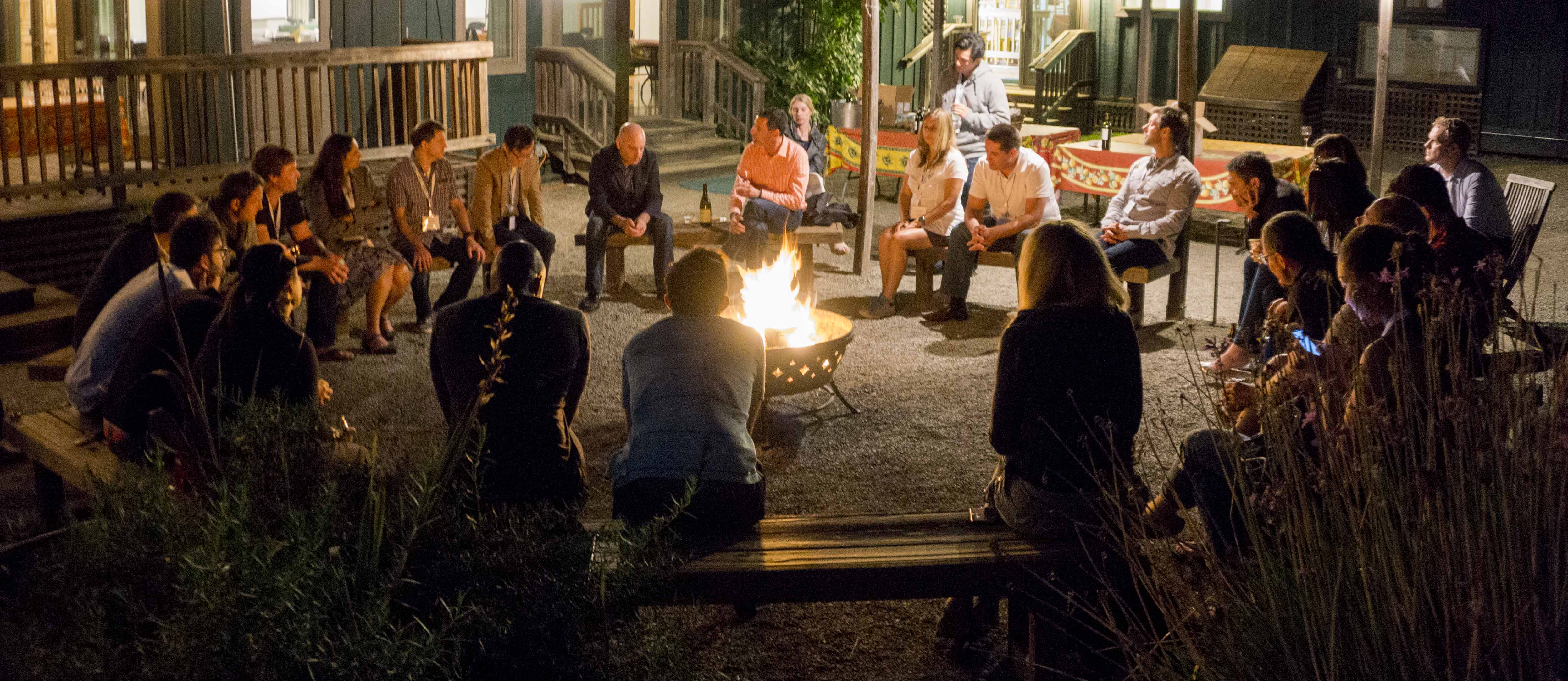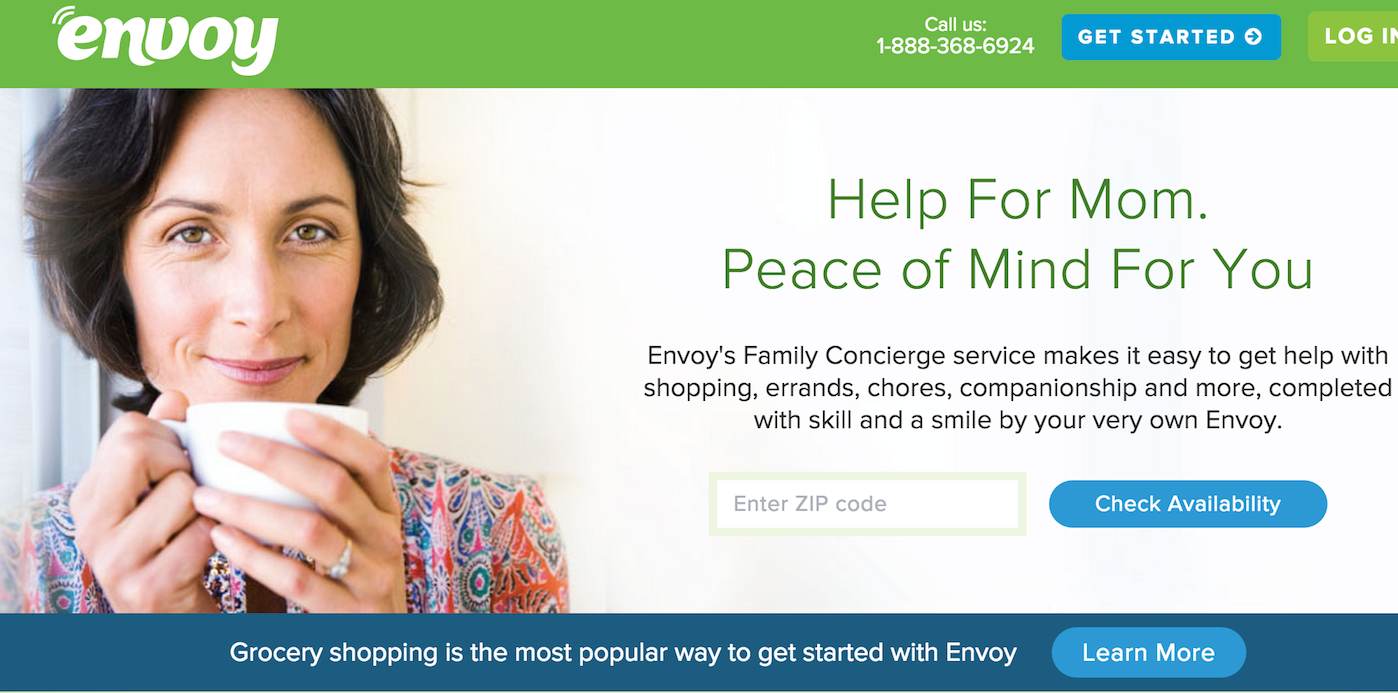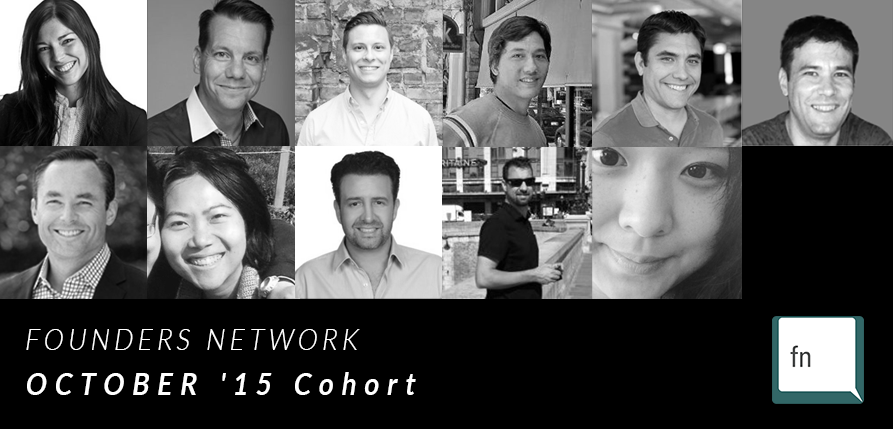
Founders transition from makers – the mad inventors chasing a crazy idea – to leaders tasked with growing the momentum of a team of investors and collaborators. But as later-stage founders look to level up and grow beyond an operational maker to a true leader, they have to fill in the rough edges on their own. Burnout has many interpretations in the tech community, and it’s something of a taboo to talk about – if you can’t take the heat, the culture goes, you don’t belong in the foundry.
The conversation about burnout goes beyond stress and breaking points, to more nuanced business questions of sustainability and maturity. At the recent founder-centric “fnSummit” in Napa Valley, Founders Network members weighed how becoming a better leader involves rejecting some of the “just try harder” myths of Silicon Valley culture, and thinking through living the 24-hour startup life in a way that leaves you able to nurture not just this company, but the next one and the one after that.
They offered four lessons in “founderhood” that scale from a company’s first days to riding out an IPO.
- Young founders usually work in a tech monoculture – but mature leaders look further for challenging (and balancing) points of view
- External expectations don’t reflect what’s best for you – OR for your company
- It doesn’t get any easier, but that’s not bad news
- Avoiding burnout requires doing what you already know you should
Young founders usually work in a tech monoculture – but mature leaders look further for challenging (and balancing) points of view
Before he founded Mucker Capital, William Hsu followed the storybook founders path, starting a company at age 22 and figuring out how to become an adult at the same time he learned to raise $50 million and grow to over 250 employees.
“It’s as if I was a ‘genius’ but didn’t learn algebra or addition or subtraction – I went straight to calculus,” Hsu says. Founders often start businesses long before they’ve worked their way through different roles in a corporate life cycle – sometimes before they’ve even logged much experience working, period. That means that a few years in, they’ve picked up many of the rules of the game, but not necessarily in a guided way.
“I eventually figured out what I needed to, but I had to reinvent the wheel every single time,” Hsu says. He values the idea of “impatience” with one’s career – an open and directed search to seek out experiences that challenge what you think you know about business. “Be blunt and critical about what you don’t know, and be very open and directed about getting those experiences,” he says. “That doesn’t necessarily mean going to work at Google – if your network is robust, like with Founders Network, what you need to do is take time out from the business day-to-day to actually talk to your peers, other entrepreneurs who’ve made it. Carve out time to learn, even while you are learning a business.”
What you need to do is take time out from the business day-to-day to actually talk to your peers, other entrepreneurs who’ve made it
That learning requires looking beyond immediate peers to a more diverse cohort. Helge Hellberg sees a pervading assumption of “masculine” culture in tech. As founder of Organic Media Network, which has grown to reach 10 million users, he has seen a prevailing assumption among entrepreneurs that when things get tough, you should get even tougher – doubling down rather than taking a step back. “Instead of allowing space for creativity and nurturing – which is what’s mostly needed – we tend to do the opposite, and work harder,” he says. It should be obvious: if the way you’re living as a founder isn’t working now, why not assess what you can change? But that requires a departure from the “work more, work harder” culture.
“I can guarantee you will be a kinder person in the world – somebody who really takes care of themselves is usually not an asshole at large. And that’s good for your company, not just for you,” Hellberg says.
Somebody who really takes care of themselves is usually not an asshole at large. And that’s good for your company, not just for you.
External expectations don’t reflect what’s best for you – OR for your company
There’s a myth in the valley – or motto – that if you don’t kill yourself working, you’re not fully committed as a leader. “I see people so burnt out that all they know is how to run their companies, not even the basics of healthy living or taking care of yourself,” Hellberg says. Buying into that narrative doesn’t last, according to the founders and investors in Founders Network who’ve been around long enough to see what it takes to survive not just one successful company, but a series of them.
“There’s this really fundamental belief that if you don’t struggle as an entrepreneur, you’re not in it. If you really need to change something, you’re kind of weak,” Hellberg says. “That mindset is toxic – that the unsuccessful ‘gave up’ – and it’s a voice that echoes through the entrepreneurial area so heavily.’”
Struggling at a constant personal breaking point fits the mythos of the unicorn-creator, but it doesn’t define the reality of many – perhaps even most – startups that mature into stability with undamaged founders. “If you let the startup get into your veins, it hurts you and your business,” says Ranan Lachman, who’s raised $15 million for his sharing economy startup Pley after life as an investment banker and before that, an Israeli Air Force fighter pilot. “It is for the benefit of the company that you take care of yourself, and you project it in your ability to raise money and to lead your team,” he says. “They need to look at their leader, the CEO of this company, and see that he’s doing all of this, and still going to the gym! He looks normal.”
It is for the benefit of the company that you take care of yourself, and you project it in your ability to raise money and to lead your team
It’s good for your company to give some care to yourself – but many people don’t have an incentive to remind you of that. “Being a CEO is the loneliest job in the world. Nobody is your friend – when everything goes wrong it’s your fault, and when everything goes right they’re all waiting for you to fail,” Hsu says sympathetically from his new vantage point as investor observing a new generation of founders. “Take time to go to that network that is totally outside of your company – people that don’t report to you, don’t need to listen to you and don’t care about the consequences of telling you that hey, you should be trying something else. Context and perspective is so important as a CEO.”
It doesn’t get any easier, but that’s not bad news
“I criticize the term work/life balance, because in today’s world ‘balance’ suggests that there is a wall between work and life. Unfortunately, as an entrepreneur it’s all together,” Lachman says. When you’re chasing an idea you love, you probably won’t be turning it off at an arbitrary time of night. But that means that a passionate founder has to be very mindful of how she acts out that obsession.
“I have the privilege of taking my work home to my kids and having them be the testers of my product, but that’s a rare kind of project,” Lachman says of Pley, which allows families to subscribe to a monthly delivery of creative toys that are reused over time. Imagine the largest trove of Legos you’ve ever seen. “I use my kids and wife to bounce ideas and perfect what we’re doing, but most people cannot combine them. Before you have a good team and your core business running it is very hard to do other things,” he acknowledges. “It does spread you thin.”
“The moment you are an entrepreneur, you basically give up most of your life,” Hellberg says. “That makes it even more important to look at the quality of that world – of founderhood. It is not just a job, but that doesn’t change your makeup as a human being. And you’ll pay the bill later [if you don’t have the right foundation].”
As a leader of a company, as a leader of a team, being the best version of ourselves means coming from a place of self-sustainability, he says. “Every VC at the summit said that if your life is stressful, just wait until you get funded – because then it gets really stressful.”
But they’re not offering this as bad news – instead, it’s a call to stop cutting corners. Preferably before you start. “Mindfulness is not a luxury, it is a foundation,” Hellberg says. “That means productivity, leadership, how you show up and what you expect of others.”
Mindfulness is not a luxury, it is a foundation. That means productivity, leadership, how you show up and what you expect of others.
The common offenders get rattled off by every entrepreneur listing what they wish they had more of: time for nourishing food and exercise, unplugged moments away from the demands devices carry. And Founders Network’s funded founders will tell you that it doesn’t get easier – raising $15 million doesn’t actually make you any happier than you were before – so don’t drop happiness from your list of must-haves. Ever.
“Taking a long-term approach is the huge take-away,” says Kevin Holmes, who started Founders Network in 2011 to create a place for entrepreneurs to share this kind of peer experience. “Too often we don’t take care of ourselves until some upcoming milestone like funding is achieved. The focus on fundraising comes at the expense of other areas – product, recruiting, growth and oneself,” he says.
This seems like it should be obvious advice. It is. But translating it into everyday choices requires more than just discipline (discipline is pretty good to have, too – Lachman cited the training to withstand torture in the Israeli armed forces as a desirable preparation for enduring the hours and stress of a founder’s lifestyle).
Avoiding burnout requires doing what you already know you should
Founders already know what they should be doing – and it doesn’t involve chasing a water-boarding lifestyle. “It doesn’t take much to open the door,” Hellberg says. “All we have to do is a have a little bit of help and assistance and practice.”
Step one: accept that a good leader manages his life as well as his company. And find the peers who can help you see that in action. That’s part of why Hsu thinks broad networks are important to successful entrepreneurship. This isn’t just kumbaya permission to put ‘you first.’ “If you’re totally committed to your company but you miss life, it makes you somewhere, deep down, resentful of the company you’re trying to build,” Hellberg says. “That does not make you a good leader.”
Step two: focus on what’s actually working and emulate it from there. “The art, which is not easy, is first of all to put the fundamental things you need in your schedule that destress you,” Lachman says. He works out in the morning, regardless of how his week is shaping up, because he knows he must. As a young founder, Hsu practiced learning to look up and leave his desk even when he was in a terrible mood, and to act like the leader he was trying to learn to be for his team, even if at first it didn’t come naturally. “Have a little reminder ring every hour to take a couple of really deep breaths, or take your day back by only doing emails at certain points in the day. Whatever you need to do to get ahold of yourself,” Hellberg says.
“In Founders Network we have a unique opportunity to focus on issues that relate directly to founders vs. their startups – and sometimes those two are not aligned, or at least not the same. That’s why we have a theme of not just surviving as a founder, but thriving,” Holmes says. He organizes events like the fnSummit because he thinks the stronger relationships formed over a few days in a retreat-like, immersive experience lead to in-depth connections between the personal and the business. That’s means not just more effective sharing of advice and peer support, but also a stronger logic connecting how the personal and business sides of a founder’s life need to align for success in the year ahead.
“I’m never a satisfied person – no matter how well potentially you do, you want to do better,” Lachman says. But that doesn’t mean he feels destined to burn up in pursuit of Pley’s continued success. “You need to sit with yourself and say, ‘What is really important to me?’ I’m making sure that I have the time that I feel is right with my kids, and the rest of it goes to my work. Your head is always thinking about the business, and that is something you can’t stop, unfortunately. You have to manage it.” In Lachman’s case, that means setting aside his iPhone and putting his children to bed – but then sometimes working into the night. “My wife always tells me that this is my last startup,” he says ruefully. “But I can tell that if I had the capacity, I have 5 other ideas that I wish I could have seeded on the side and let them run in parallel.”






